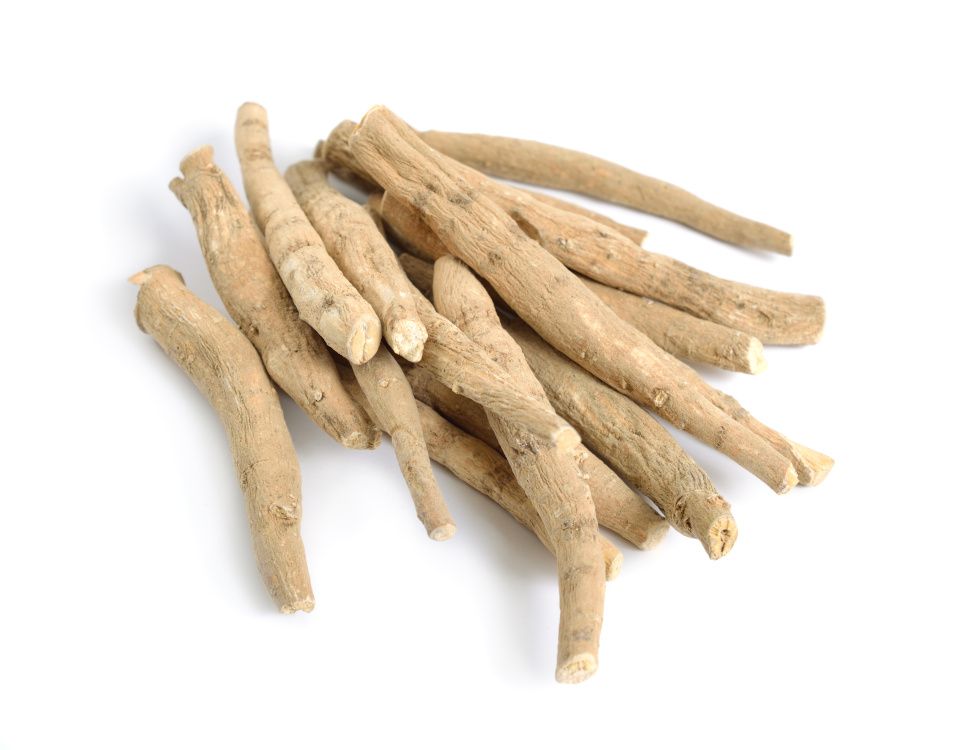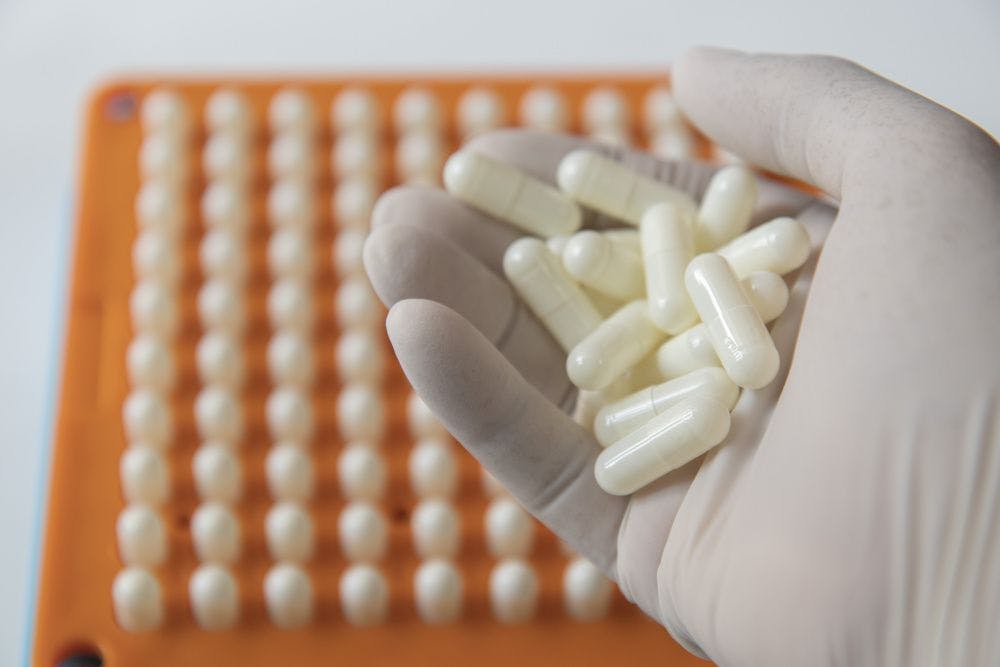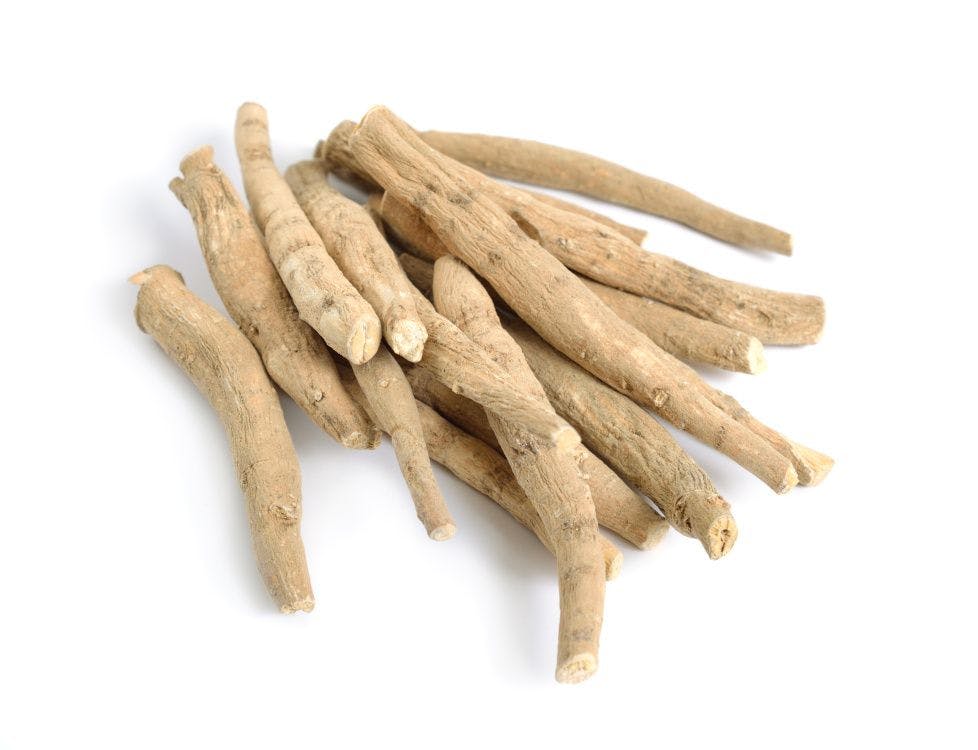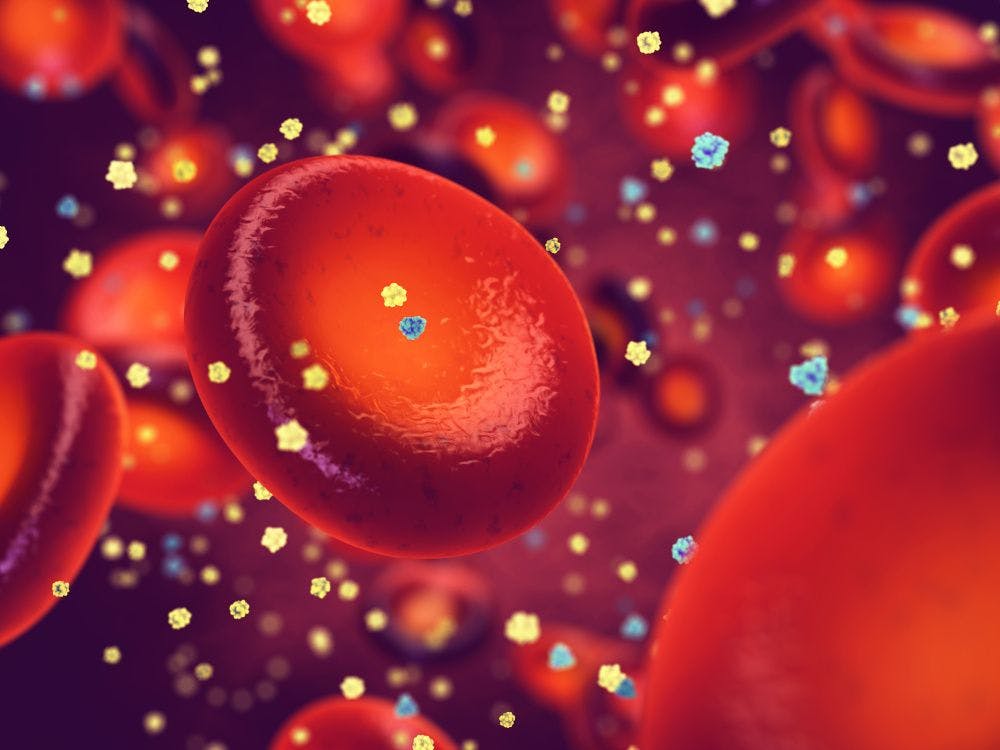Ashwagandha sales grew in 2020. Experts discuss how it will lead the mainstreaming of adaptogens in 2021. 2021 Ingredient trends to watch for food, drinks, and dietary supplements
Ashwagandha sales grew impressively in 2020, with chronic stress and sleeplessness on the rise especially during the COVID-19 pandemic. Experts discuss how ashwagandha is poised to lead the adaptogens category into the mainstream in 2021.
PHOTO © SPLINE_X - STOCK.ADOBE.COM

Chronic stress and its effect on our mood, sleep, and ultimately our overall health has been a growing topic of interest as people of all walks of life contend with a hustle culture that deteriorates work-life balance, the constant barrage of stimuli from screens of all sizes, and the cultural, sociopolitical anxieties that manifest from our unencumbered access to information. According to the Centers for Disease Control and Prevention, one-third of U.S. adults report not getting the recommended amount of sleep each night, and according to the National Institute of Mental Health (NIMH), chronic stress can be detrimental to the immune, digestive, cardiovascular, sleep, and reproductive systems. While some people may experience mainly digestive symptoms, says NIMH, others may experience headaches, sleeplessness, sadness, anger, or irritability.
It has become clear to consumers that health is not simply measured on a scale. A recent Health and Nutrition Survey from Euromonitor International, fielded from January to February 2020, prior to the start of the COVID-19 pandemic, found that the majority of respondents defined health as “mental well-being.” The third-most-cited definition was “getting enough sleep,” and the fifth was “emotional well-being.” As such, new product development for products positioned for sleep and relaxation has seen significant growth. According to Innova Market Insights, between 2015 and 2019, new product development for sleep and relaxation products went from 1,735 to 2,833.
Ashwagandha (Withania somnifera), an ingredient with a long Ayurvedic tradition and growing body of research, has been a rising star in the categories of stress management and sleep support. Its benefits can extend to immune health and sports nutrition as well. According to an Herb Market Report published by the American Botanical Council’s (Austin, TX) journal HerbalGram, ashwagandha was the fifth-highest-selling herbal ingredient in the U.S. natural retail channel in 2019, with $13.7 million in total sales (based on SPINS data covering the 52 weeks ending December 29, 2019). Within the U.S. mainstream channel in 2019, ashwagandha saw the third-highest sales growth behind cannabidiol (CBD) and elderberry, with 45.2% sales growth to reach $10.8 million in sales.
Looking at the beginning of 2020, the outbreak of the COVID-19 pandemic was the manifestation of some of humanity’s greatest fears, and while time has allowed most of us to accept the “new normal,” the future remains uncertain. It is therefore no surprise that more people are taking proactive measures in an attempt to improve their circumstances, even if that’s something as simple as getting a good night’s sleep. This is encapsulated in SPINS data for 2020 showing a 3995% increase in sales of ashwagandha in the U.S. mainstream sleep-support supplements category (SPINS data based on the 52 weeks ending November 29, 2020). Ashwagandha is even outpacing 5-HTP, a well-known sleep-support ingredient, by over $2 million dollars. In the U.S. natural supplements channel, where more consumers are familiar with ashwagandha, ashwagandha sales remained stable in the mood-support category, only exceeded in sales by magnesium.
As ashwagandha gains a profile among new consumers who are educating themselves on natural options that support stress and sleep, the ingredient also serves as leader of a burgeoning category of ingredients called adaptogens.
As the name implies, adaptogens are herbs as well as mushrooms that help the body adapt to physical and mental stressors, of which chronic exposure can have long-term impacts on health. “Adaptogens address the link between stress and immune function,” explains Shaheen Majeed, president worldwide for Sabinsa Corp. (East Windsor, NJ). “In Ayurveda, [ashwagandha] has been used for mood support and to treat anxiety. It has anxiolytic activity, relieving stress and anxiety, and is an immunomodulator, which can help in mood swings.”
While adaptogens have no clinical definition, the concept has been working its way into the natural products industry for some time. “For a long time, the cognoscenti in the natural products world have known about adaptogens. This information has been steadily leaking out into the mainstream for more than 20 years,” points out Kartikeya Baldwa, CEO of Ixoreal Biomed (Los Angeles), which produces KSM-66 ashwagandha. Still, despite its growing presence, the adaptogen category’s profile remains small compared to that of ashwagandha, says Baldwa, who notes, “On the contrary, ashwagandha as an ingredient is increasingly becoming more mainstream as an ingredient.”
“Adaptogens as a category continue to have increased awareness among consumers, but ashwagandha has emerged as a leading ingredient of interest in this category, likely in part due to its recognition for supporting chronic stress management and sleep as two primary health concerns for consumers,” says Anthony Thomas, director of scientific affairs for Natreon Inc. (New Brunswick, NJ).
“It is our belief that many people are discovering adaptogens because of ashwagandha, which has served as the gateway herb to the overall adaptogen category,” adds Gaia Herbs Product Manager Jonathan Fitzpatrick. The increased use of ashwagandha in products by mainstream CPG companies will therefore serve as a major inflection point, not only for the herb itself but also for adaptogens as a category as more manufacturers become motivated to find other adaptogenic ingredients to meet demand for stress- and sleep-support products.
Fitzpatrick points to the brand Vicks which, despite not being an herbal brand, recently launched a product featuring ashwagandha. The inclusion of ashwagandha in Vicks ZzzQuil Pure Zzzs De-Stress and Sleep Gummies may mean the ingredient has reached “ubiquity stage,” says Fitzpatrick. Products such as the aforementioned Vicks gummies will be attractive to more casual mainstream consumers who will take notice of this unfamiliar new herb being used by trusted brands. Knowledge of Ayurveda and adaptogens will likely grow from there.
Contributing to ashwagandha’s sales performance is the fact that consumers very likely feel a difference from using it. “Adaptogens, those agents that help us to adapt to all forms of mental and physical stress, are all experiential. You feel ashwagandha and other adaptogenic herbs,” explains Baldwa.
Ashwagandha’s Ayurvedic tradition is enough proof for some, but there is a growing body of research lending the herb credibility among those who value science above all else. “Ashwagandha is already very well established for its benefits, but scientific studies describe those benefits in a language of the times, and this is very helpful,” says Baldwa. “Studies that focus on improved athletic performance and overall cardiorespiratory efficiency have opened up new areas of use for ashwagandha root and its supplements. Studies on the applications for cats, dogs, and horses have opened doors into the veterinary world.”
The success of ashwagandha is therefore not limited to the categories of sleep or stress support but will bleed into other popular categories such as cardiovascular health, sports nutrition, immunity, and pet care. The key is to grow our understanding of the ingredient’s mechanisms. “Crucial areas [in which] our scientific understanding of ashwagandha are advancing [involve] the biological responses contributing to various health benefits, such as blunting excessive cortisol production in response to stress and reducing inflammation,” says Thomas.
A big part of this progress is the development of standardized ingredients and scientific validation of these ingredients. Products like KSM-66 from Ixoreal Biomed, Sensoril from Natreon Inc., and Shagandha from Sabinsa Corp. all seek to differentiate themselves by offering quality, validation, and versatility.
“Standard root powders are not particularly soluble nor concentrated in bioactive compounds thought to be responsible for mediating the potential health benefits, thereby requiring larger quantities ingested (e.g., grams) and limiting incorporation into food and beverage delivery formats,” explains Thomas. “Extracts derived from ashwagandha are more concentrated in bioactives, lending to lower intake levels per serving for incorporation into food and beverage formats, but still present challenges with regard to taste and solubility.”
Baldwa adds, “Consumers want their supplements to be out of medicine cabinets and into their refrigerators; therefore, we see an increasing demand for functional foods and functional beverages.”
While certain branded extracts such as Sensoril and KSM-66 offer versatility across multiple delivery formats, this will be an area of continued improvement and innovation for most suppliers and formulators. Capsules will therefore remain a viable and important delivery format for ashwagandha. “The translation of ashwagandha is roughly, ‘the smell and strength of a horse,’ alluding to its not-so-pleasant aphrodisiac properties, as most people find the taste of ashwagandha bitter and unpalatable,” says Susan E. Hirsch, MS, CNS, Gaia Herbs’ formulation manager. “This unpleasant taste does inhibit delivery formats, as most people prefer this particular herb in a capsule format so they are not tasting the herb.”
As demand grows and ashwagandha makes its way into more products, it’s important to understand the risk of adulteration. “Make no mistake, the growth in demand is significant. And as we know, with rapid growth comes the need for heightened vigilance regarding identity and quality,” says Majeed. “An herb is more subject to adulteration when demand is high, so Sabinsa built in some protection for its customers.” By protection, Majeed is referring to the fact that Sabinsa’s Shagandha is verified by USP to be standardized to 2.5% withanolides, which has been additionally confirmed through testing by Alkemist Labs (Garden Grove, CA). Independent third-party certification not only offers ease of mind to the manufacturer but also grows consumer trust.
“Because of the pressure on the supply chain, the most important trend in the near future would be vertical integration,” says Baldwa. “Suppliers who would own their supply chain will have an advantage over the others. The independent third-party quality certifications will also instill confidence amongst the consumers with regards to the quality of the product.”
Some brands are putting in their own work to ensure quality and consistency. “Gaia Herbs prevents counterfeiting by going directly to the source for our ingredients, working only with the highest-quality producers and farmers who meet our stringent quality standards and that we trust, and testing DNA and using HPLC (high-performance liquid chromatography) fingerprinting to verify that every single botanical ingredient that we use in our products meets our stringent standards,” says Hirsch.
Ashwagandha was already a well recognized ingredient with great sales performance, but the pandemic may have given the herb a huge push as new consumers seeking out a natural remedy to help them deal with stress and poor sleep quality were introduced to the ingredient. With major CPG brands already utilizing ashwagandha, the herb will now find its way into more mainstream products across a number of delivery formats and categories.
“The market is evolving based on consumer demand for new delivery methods for herbal supplements outside of the traditional forms of capsules and tinctures,” says Fitzpatrick. “New customers for natural products, especially younger consumers, are interested in more novel delivery forms. That’s why we are now seeing more herbal supplements—even ashwagandha with its bitter, pungent taste—now offered in the forms of beverages, chocolate, coffee, powders, gummies, and candies to meet this growing demand.”
Like many dietary supplements, ashwagandha will often be formulated with complementary ingredients to promote specific health benefits. For example, the Vicks ZzzQuil Pure Zzzs De-Stress and Sleep Gummies combine ashwagandha with the very popular melatonin. “We are also seeing ashwagandha becoming an ingredient that combines well with CBD,” says Thomas. “Nature’s Way recently launched their new CBD stress supplement containing Sensoril. The combination of broad-spectrum hemp extract and Sensoril ashwagandha is beneficial in reducing everyday stress.”
Synergistic blends such as this will help boost the herb’s profile and encourage more experimentation with ashwagandha from other CPG brands.
2021 Ingredient Trends to Watch for Food, Drinks, and Dietary Supplements:
Vitamin C
Melatonin
Vitamin D
CBD
Elderberry
Mushrooms
Ashwagandha
Multivitamins
Protein
Probiotics


























